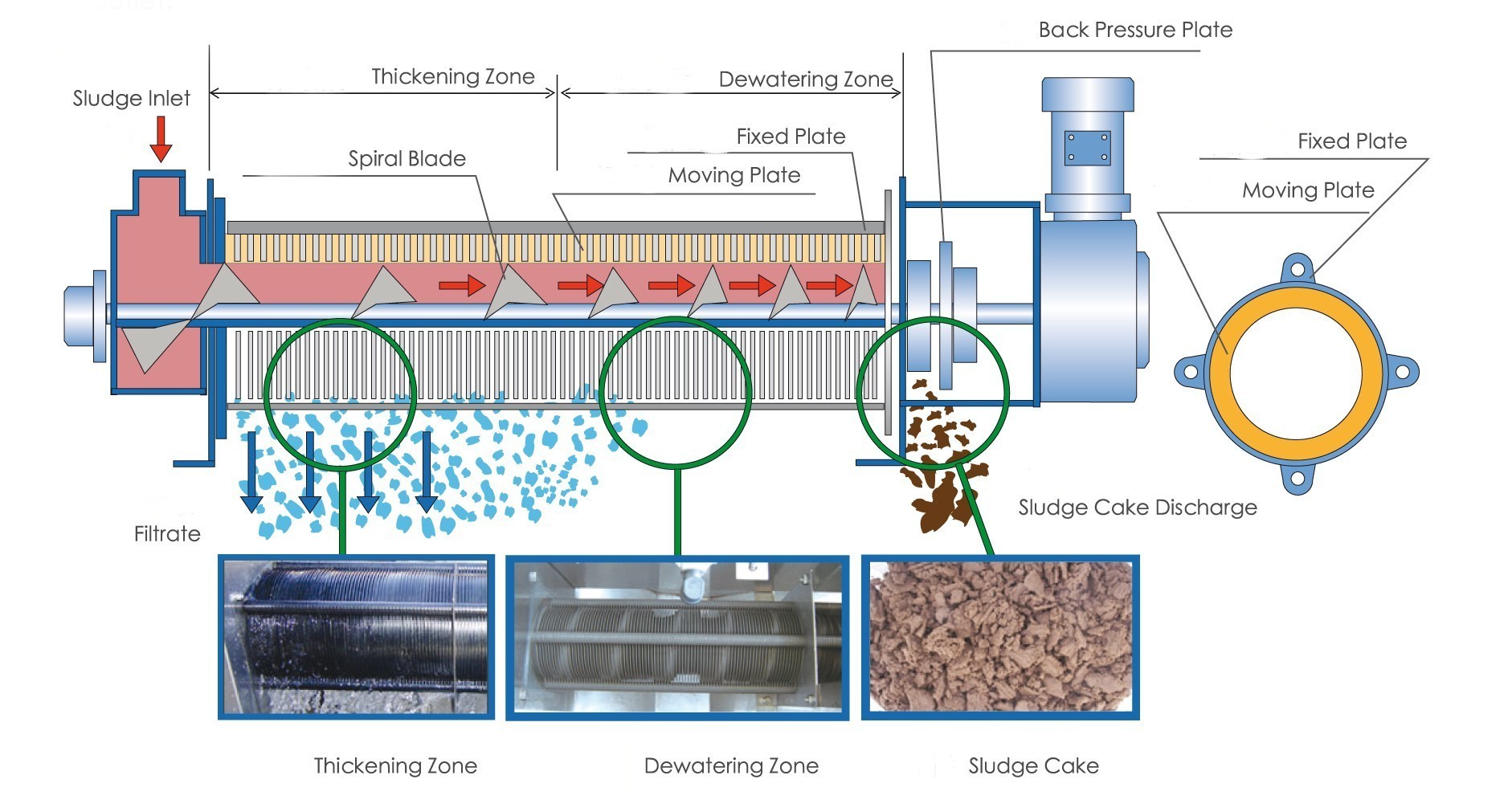

BLOG
What is Sludge Dewatering?
What is Sludge Dewatering?
13 September 2023
In the realm of wastewater treatment, sludge is a common byproduct that poses challenges in disposal and management. Sludge dewatering is a crucial process that addresses these challenges by reducing the moisture content in sludge, making it easier and more cost-effective to handle. In this blog post, we'll explore what sludge dewatering is, how it works, and why it plays a vital role in wastewater treatment.
Understanding Sludge Dewatering
Sludge dewatering is a process that involves the removal of water from sludge, resulting in a more concentrated and solid material. Sludge typically contains a significant amount of water, making it heavy, voluminous, and challenging to transport and dispose of. Dewatering aims to reduce the moisture content, transforming sludge into a more manageable form.

How Does Sludge Dewatering Work?
Sludge dewatering employs various techniques and technologies to remove water from the sludge effectively. Here's an overview of the common methods:
1. Gravity Thickening: In this method, sludge is allowed to settle in a tank, and gravity causes the solids to separate from the water. The sludge thickens as water rises to the top and is skimmed off.
2. Belt Press: Sludge is fed onto a porous belt, which passes through a series of rollers. As the belt moves, pressure is applied to squeeze out the water from the sludge, leaving behind dewatered sludge solids.
3. Centrifugation: Centrifuges are used to spin the sludge at high speeds. The centrifugal force separates the solids from the water, with the solids collecting at the outer edge of the centrifuge drum.
4. Filter Press: Sludge is pumped into a series of chambers filled with filter plates. The pressure is applied to squeeze out the water through the filter cloths, leaving behind solid sludge cakes.
5. Drying Beds: Sludge is spread out on drying beds, allowing natural evaporation and drainage to reduce moisture content. This method is often used in conjunction with other dewatering techniques.
The Importance of Sludge Dewatering
Sludge dewatering offers several advantages and benefits:
· Cost Reduction: Dewatered sludge is lighter and takes up less volume, reducing transportation and disposal costs.
· Environmental Benefits: Dewatering minimizes the environmental impact of sludge disposal by reducing the volume of material that needs to be handled and disposed of.
· Resource Recovery: Some dewatered sludge can be further processed to recover valuable resources, such as biogas or organic fertilizers.
· Compliance: Meeting regulatory requirements for safe and responsible sludge disposal is easier when sludge is dewatered, as it reduces the risk of leaks and spills.
· Energy Efficiency: Dewatering processes are energy-efficient and contribute to sustainable wastewater treatment practices.
In conclusion, sludge dewatering is a critical step in wastewater treatment that enhances the efficiency of sludge management. By reducing moisture content and making sludge easier to handle, it offers cost savings, environmental benefits, and the potential for resource recovery. If you have any questions or want to learn more about sludge dewatering, please feel free to reach out to us. Together, we can explore effective wastewater treatment solutions.



